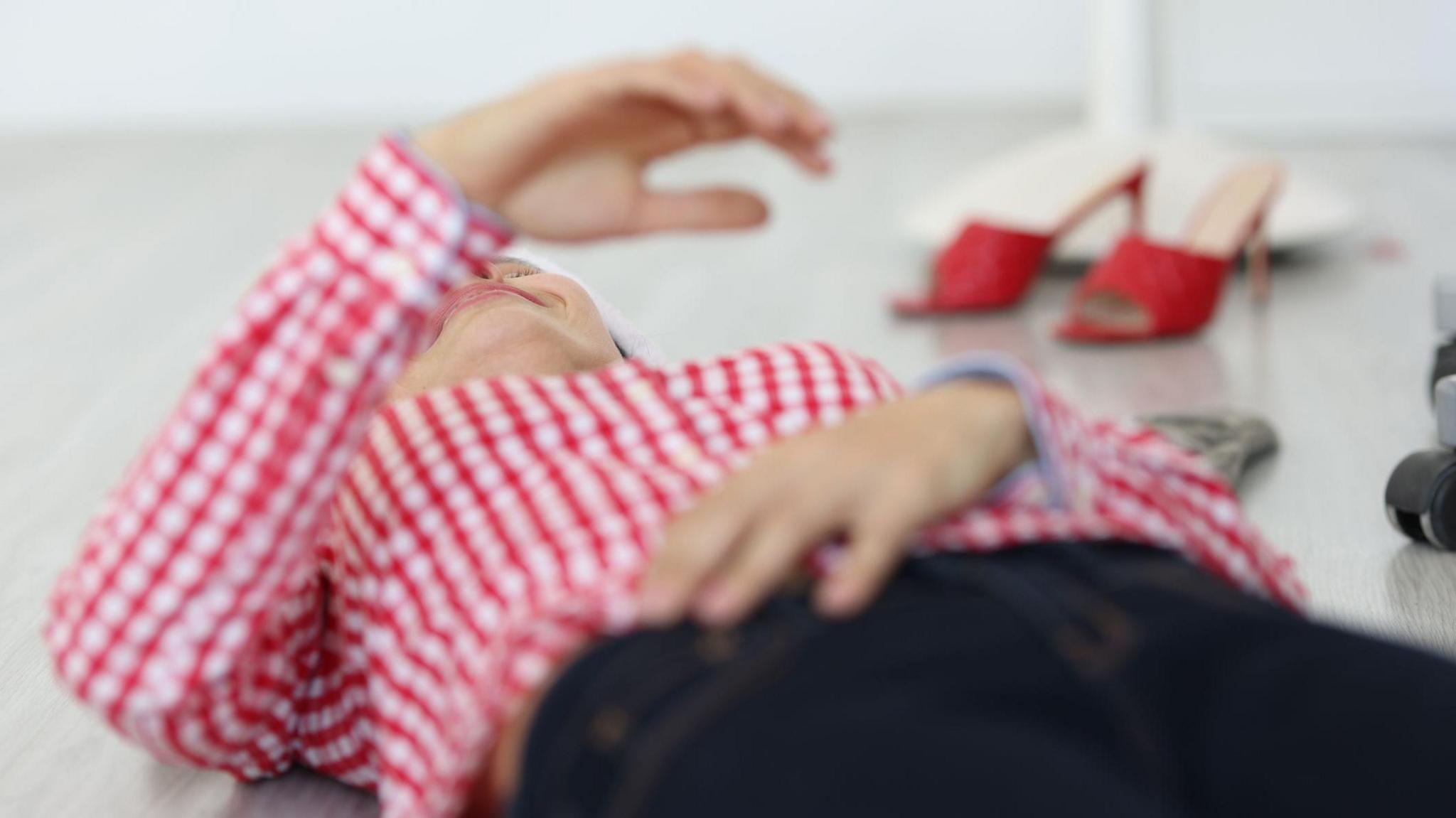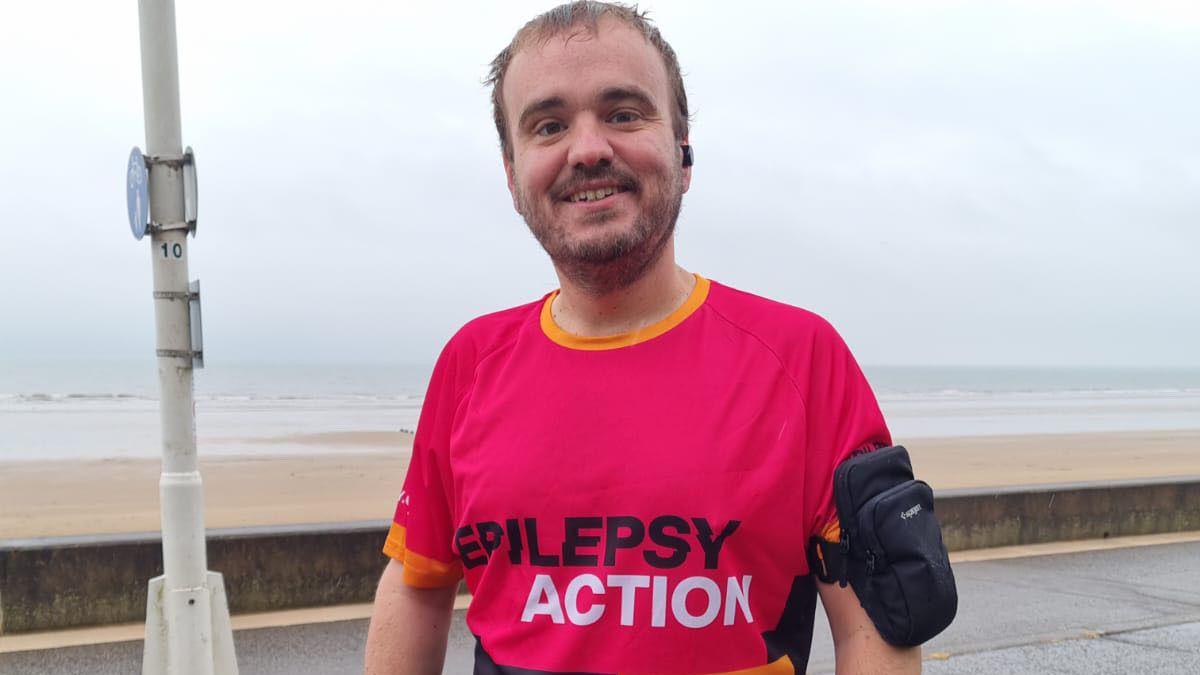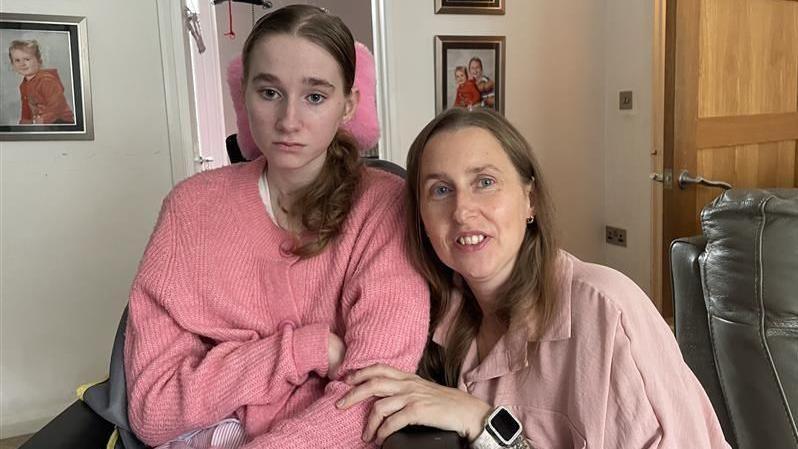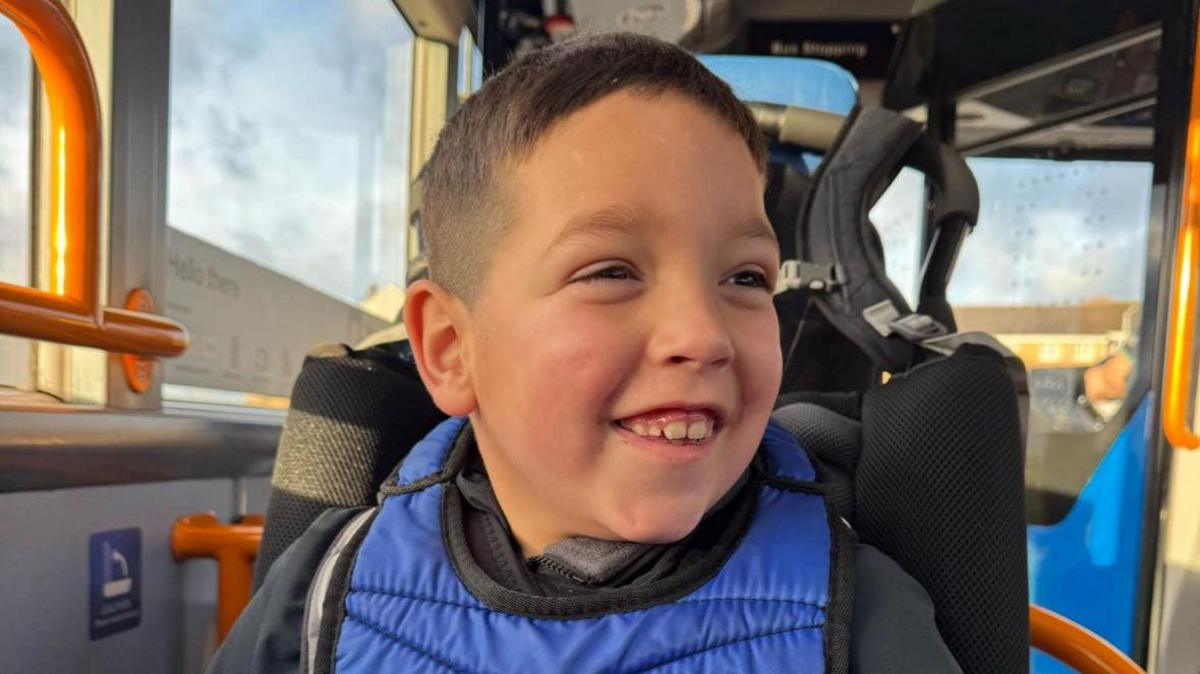'We need to raise epilepsy awareness to save lives'

Tayybah suffers from idiopathic epilepsy, which means her seizures are unpredictable
- Published
A woman who has epilepsy says she is "petrified" to leave the house due to a lack of public knowledge about the neurological condition.
Tayyibah Apabhai, from Warwickshire, told the BBC that she was born with the condition and was often discriminated against when at school by staff and pupils.
"I don't know when a seizure will happen; it's unpredictable. If I'm in public and someone pushes down on me, I could die," the 29-year-old said.
The activist and writer about the condition is taking part in Epilepsy Action's new campaign, encouraging people to become allies and learn how to deal with attacks that happen in front of them.
The Can I Count On You campaign is asking people to stay with someone until the epileptic seizure is over, to make sure their head is protected and to record how long the episode lasted.
It's estimated that 10% of people in the UK have the condition, which can lead to neurones in the brain being overloaded with electrical activity.
It means people with the condition get seizures that range from uncontrollable movements to falling down, going stiff and twitching.
Ms Apabhai, who has idiopathic epilepsy, which means her seizures are unpredictable, told BBC CWR she was called a "burden" by her teachers.
She said: "Employers didn't want to employ me despite qualifications. I had problems at university and was bullied at school. I felt very vulnerable."
"School was terrible. Teachers would call me a burden and throw me out of the classroom, and I was totally discriminated against by students there, verbally and physically.
"We need to raise awareness and knowledge so you can stop discrimination and save some lives."
'I would die in seconds'
Epilepsy Action said when someone has a seizure in public, many people can go into "flight mode" – freezing, looking away or hoping someone else will step in.
For the 630,000 people in the UK living with epilepsy, that hesitation can be dangerous.
Ms Apabhai said: "When I have a seizure, the neurones in my head do not connect.
"My whole body starts to shake. I lose consciousness around me, and all the organs in my body are at risk of failing.
"If I was in public and somebody pushed down on me, I would die in seconds."
She told the BBC she was "petrified" to leave the house due to the lack of knowledge people have on the condition.
When asked what someone should do if witnessing a seizure, she said: "I would say remove any dangerous objects, protect the head, and do not press on the body or put anything in the mouth unless you are trained.
"Call an ambulance straight away."
Get in touch
Tell us which stories we should cover in Warwickshire
Follow BBC Coventry & Warwickshire on BBC Sounds, Facebook, external, X, external and Instagram, external.
Related topics
- Published11 June

- Published22 September

- Published2 May
